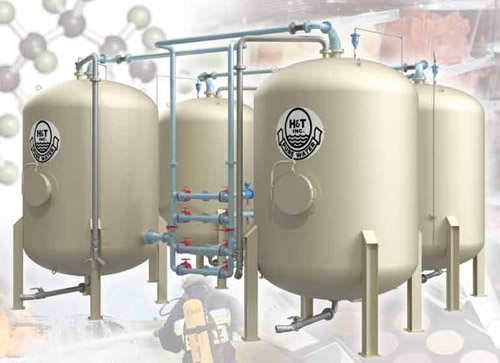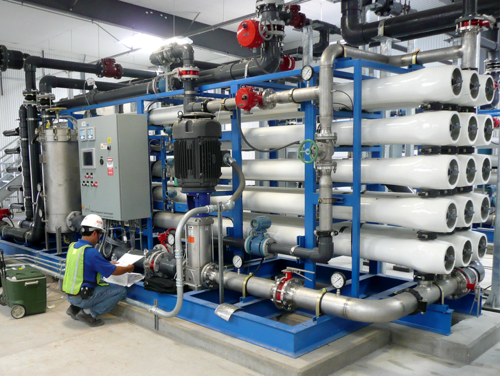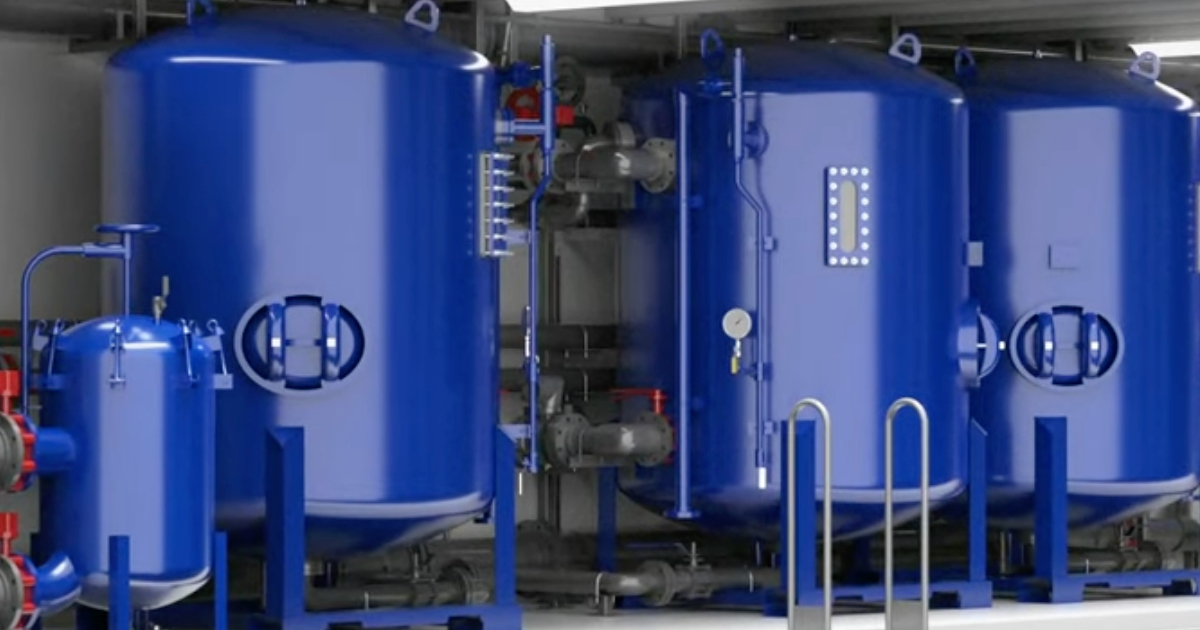Exactly How PFAS Treatment Makes Sure Tidy and Sustainable Water
The presence of PFAS, commonly understood as "for life chemicals," positions considerable challenges to water high quality and public wellness. Advanced therapy innovations, including triggered carbon adsorption and membrane layer filtration, have actually emerged as efficient options to reduce these contaminants. By utilizing these approaches, neighborhoods can not only achieve cleaner water however also foster sustainable practices that secure environments. The effects of these treatments extend past immediate wellness advantages; they increase crucial concerns about long-term water administration approaches that need to be dealt with to guarantee a resilient future. What does this mean for our approach to water sustainability?

Comprehending PFAS Contamination
PFAS, or per- and polyfluoroalkyl materials, have become a considerable ecological concern due to their widespread frequency and persistence in the environment. These artificial chemicals have actually been utilized in different commercial applications and consumer items, consisting of non-stick pots and pans, water resistant garments, and food product packaging, as a result of their unique homes such as water and grease resistance.
The contamination of dirt and water resources by PFAS takes place mainly through commercial discharges, firefighting foam usage, and leaching from land fills. pfas management. When launched, these compounds are resistant to destruction, bring about their accumulation in the atmosphere. This persistence elevates crucial issues, as PFAS can travel fars away with groundwater and surface area water supply, impacting drinking water supplies and environments

Health Dangers of PFAS
The determination of PFAS in the atmosphere increases considerable health and wellness worries for people subjected to these compounds. Known as "permanently chemicals," PFAS do not damage down easily and can accumulate in human bodies with time. Research study has actually connected PFAS direct exposure to numerous negative health and wellness effects, consisting of body immune system dysfunction, liver damage, and raised danger of particular cancers - pfas management. Significantly, research studies have actually revealed elevated cholesterol degrees and possible effect on reproductive and developing health, especially in pregnant individuals and babies.
The universality of PFAS in customer items, such as non-stick pots and pans, water-repellent fabrics, and food product packaging, additional intensifies the risk of direct exposure. Consuming water polluted with PFAS is a significant issue, as these chemicals can seep right into groundwater resources. Susceptible populations, navigate to this website consisting of youngsters and those living near industrial sites, might encounter intense risks as a result of their establishing systems and potential for higher direct exposure degrees.
As understanding of these health dangers proceeds to expand, regulative firms are starting to develop standards for PFAS levels in drinking water. Public health initiatives are vital to mitigate exposure and safeguard areas from the lasting impacts of these dangerous materials.

Ingenious Treatment Technologies
How can we successfully tackle the difficulties posed by PFAS contamination in water sources? Cutting-edge therapy innovations are becoming essential remedies in the mission for clean water. These methods concentrate on the removal or damage of per- and polyfluoroalkyl substances (PFAS), which are well-known for their determination in the atmosphere.
One appealing approach is adsorption utilizing advanced products, such as triggered carbon and ion exchange resins. These products have revealed efficacy in capturing PFAS particles from water. One more noteworthy modern technology is membrane layer purification, which uses nanofiltration and turn around osmosis to different contaminants at the molecular degree, therefore giving a barrier against PFAS.
In addition, advanced oxidation processes (AOPs) employ strong oxidants to damage down PFAS substances into harmless results. This technique is specifically effective for treating very polluted water resources. Bioremediation techniques, using details microbes, are additionally being checked out to weaken PFAS.
As research study proceeds, crossbreed systems that integrate several technologies might supply enhanced performance, dealing with the intricacies of PFAS contamination. The advancement and implementation of these ingenious treatment technologies are important actions towards making sure the safety and security and sustainability of our water resources.
Advantages of Effective PFAS Therapy
Successfully treating PFAS contamination in water sources considerably enhances public health and ecological security. PFAS, commonly referred to as "permanently chemicals," are immune to degradation and can build up in the body, resulting in serious health and wellness threats such as cancer cells, liver damage, and immune site web system dysfunction. By carrying out effective treatment methods, communities can minimize direct exposure to these damaging substances, eventually improving the health end results of their populaces.
Moreover, successful PFAS treatment adds to the conservation of neighborhood environments. Polluted water can negatively affect aquatic life and interrupt the fragile equilibrium of local habitats. By making sure clean m270 waste management water, treatment processes protect biodiversity and keep eco-friendly stability.
Furthermore, efficient PFAS removal can cultivate public self-confidence in water quality. When communities are ensured that their alcohol consumption water is devoid of damaging impurities, it advertises a feeling of safety and well-being. This trust is important for area engagement and support for continuous water administration initiatives.
Future of Water Sustainability
Amid growing concerns about water quality and deficiency, the future of water sustainability depends upon cutting-edge techniques and joint initiatives. As communities deal with the looming hazards of contaminants like PFAS, the advancement of advanced therapy innovations is vital. These innovations not only concentrate on the removal of dangerous substances yet additionally advertise the reuse and recycling of water, consequently reducing overall demand.
In addition, reliable water administration plays a crucial duty in making certain sustainable techniques. Policymakers must incorporate clinical study with regulative structures to develop clear guidelines for water use and treatment. Stakeholder interaction, consisting of neighborhood areas and industries, cultivates a feeling of common obligation and encourages sustainable methods throughout numerous fields.
Investment in framework is likewise critical; updating aging systems to incorporate modern filtering and purification techniques can considerably improve water high quality. Furthermore, welcoming eco-friendly modern technologies, such as all-natural filtration systems, can give environmentally friendly remedies.
Inevitably, the future of water sustainability lies in an all natural approach that integrates innovation, policy, and area involvement. By prioritizing these elements, we can safeguard our water resources for generations to find, making sure clean and sustainable water for all.
Verdict
In final thought, the effective therapy of PFAS is necessary for making certain clean and lasting water. Ultimately, robust PFAS treatment approaches add to long-term durability in water administration, promoting public trust fund in water high quality and advertising sustainable techniques.
 Jurnee Smollett Then & Now!
Jurnee Smollett Then & Now! Jaclyn Smith Then & Now!
Jaclyn Smith Then & Now! Nicki Minaj Then & Now!
Nicki Minaj Then & Now! Terry Farrell Then & Now!
Terry Farrell Then & Now! Mike Smith Then & Now!
Mike Smith Then & Now!